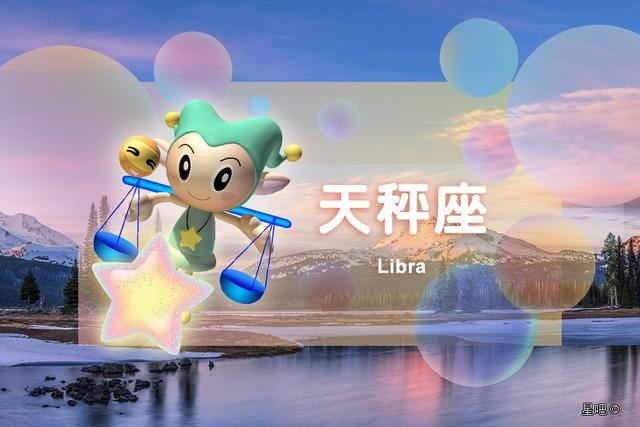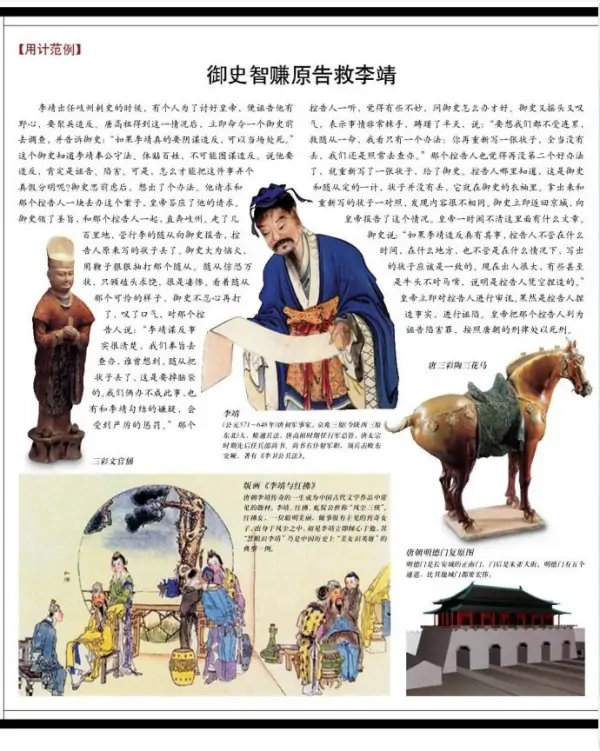能够引导非限制性定语从句的连接词有哪些
能够引导非限制性定语从句的连接词有哪些
能够引导非限制性定语从句的连接词有:which,who,whom,where,when,as等,其中最常见的就是which和as。as,
which
引导的非限定性定语从句
由as,which
引导的非限定性定语从句,as和which可代整个主句,相当于and
this或and
that。As一般放在句首,which在句中。例如:
1、As
weknow,
*** oking
is
harmful
to
one's
health.
如我们所知,吸烟有害健康。
2、The
sunheats
the
earth,
which
is
very
important
to
us.
太阳使地球暖起来,这对我们人类很重要。
【特别提示】
as
和which在引导非限制性定语从句时,这两个关系代词都指主句所表达的整个意思,且在定语从句中都可以做主语和宾语。但不同之处主要有两点:
1、as
引导的定语从句可置于句首,而which不可。
2、as
代表前面的整个主句并在从句中做主语时,从句中的谓语必须是系动词;若为行为动词,则从句中的关系代词只能用which。
非限制性定语从句缺主语用什么连接词?
非限制性定从,缺主语,人用who,物用which。定从,缺人用who,that缺物用which,that
下面分享相关内容的知识扩展:
1.英语陈述句语序和疑问句语序的结构 2.why not 后面是跟do 还是to do? 3.求非限制定语从句的运用
(非限制性定语从句的结构什么的)谢谢~
1. 假如一句中文 “我很喜欢电影黑客帝国”
陈述句 I love the movie The Matrix .(陈述一件事实。就像我们日常生活陈述事件一样,按正常语序讲述,主语 I ---谓语 love ---宾语the movie)
一般疑问句 Do you love the movie The Matrix? (提出疑问。英语很直接,有疑问一开始就把结构变换使你知道这是个疑问,所以要把助动词放在句首,其它部分不变)
特殊疑问句 what movie do you love? (特定的疑问。同样句首要有连接词表明你特别想要问什么,想要知道电影内容,就把what 放在句首,想要知道地点那就where在句首where do you watch a movie? 既然是疑问,后面还是要倒装,只不过前面加了个特殊连词表明是什么疑问)
2. why not watch the movie The Matrix with me?
这里not是don't you的简写,所以后面跟动词原形 do sth.
3. 非限制定语从句: I love the movie The Matrix,这句话主语 谓语 宾语都有了,结构完整,意思也完整,不加其他成分也不影响理解。但是讲完这句,觉得还想对这个电影补充信息,就可以用非限制性定语从句,比如 I love the movie The Matrix, which was released in the 1990s(它是90年代发行的). 因为这个定语是补充的,和前面的信息可以看作关系不是非常密切,非限制性的。
定语从句就是注意选用什么连接词,比如还是上面的句子 I love the movie The Matrix, (电影的动作场面让人印象深刻),whose action sequences are impressive. whose表示.....的,一种拥有关系
如果(电影里面里奥是救世主)英文:where Leo is the one where表示发生地点
非限制定从与同位语区别///////
非限定性定语从句:非限定性定语从句的作用是对所修饰的成分作进一步说明,通常和主句间用逗号隔开,将从句拿掉后其他部分仍可成立1. which引导的非限定性定语从句来说明前面整个句子的情况或主句的某一部分
2. 在引导限定性定语从句时,that有时相当于in which, at which, for which或at which
Attitudes towards daydreaming are changing in much the same way that(in which) attitudes towards night dreaming have changed. 人们对白日做梦的态度正在改变,这与人们对夜间做梦的看法的变化有非常相似之处。
I like the music for the very reason that(for which) he dislike it. 我出于某种原因喜欢这种音乐,而他恰恰与我相反。
We arrived the day that(on which) they left. 刚好我们到的那天他们走了。
3. 有时as也可用作关系代词
4. 在非限定性定语从句中,不能用that,而用who, whom代表人,用which代表事物
同位语从句指的是从句在复合句中作同位语,它是同位语的一种表现形式。这种作同位语的从句看起来似乎并不复杂,但在阅读和翻译中,如果我们缺少对它的分析,就有可能造成误解。现将这种从句分析如下:
A.同位语从句的实质
从句作同位语表示与之同位的名词(短语)的实际内容,它的作用相当于名词,对前面的名词(短语)加以补充说明或进一步解释,相当于一个表语从句,它们之间的关系是同位关系,即主表关系。如果用变通的办法,把名词(短语)和“主语+be+表语”结构联系起来,就可以看出这种同位关系。试比较:
We all know the theory that matter is made up of atoms and molecules. (=We all know the theory, and the theory is that matter is made up of atoms and molecules.) 我们大家都知道物质是由原子和分子构成的这一理论。
The suggestion that we should develop the natural resources in the region has been discussed.(=The suggestion is that we should develop the natural resources in the region, and the suggestion has been discussed.)关于我们应该开发本地区资源的建议已经讨论过了。
The problem whether natural rubber is a polymer with linear chain molecules has been solved.(=The problem is whether natural rubber is a polymer with linear chain molecules, and the problem has been solved.)天然橡胶是否是线型链状分子的聚合物,这个问题已经解决了。
I have no idea when she will be back.(=I have to idea, and the idea is when she
will be back.)我不知道她什么时候会回来。
B.引导同位语从句的连接词
引导同位语从句的连接词最常见的是that。That是一个纯引导词(pure introductory word),在同位语从句中常可省去,尤其是在口头语中。例如:
I had the impression (that)your government was undecided about assisting us. 我的印象是,你们 *** 还没有决定援助我们。
“Billing and cooing! That's the way (that) you think of it! That's the way (that) you talk of it!
As though it were something you had to do.”“谈情说爱!这是你的想法!这是你的说法!仿佛这是你的义务似的”。
连接词when, where, why, whether, how 等也可引导同位语从句,这些连接词除有连接主句和同位语的语法功能外,还有一定的“疑问”意义。例如:
He has solved the question why he is ill. 他已经解决了他为什么生病的问题。
Have you any idea how fast sound travels? 你知道声音传播有多快吗?
连词but that 也可引导同位语从句,人它通常出现在“否定词+doubt (deny, question)等名词”结构之后。这时,but 无否定含义,仅起强调作用,常可省去;有时也可省去that而保留but。例如:
There is no question (but) that the four modernizations will be realized in China by the end of the century. 中国在本世纪内实现四个现代化,这是没有问题的。
There is no doubt but (that) we will succeed in designing the project.毫无疑问,我们能把这项工程设计出来。
C.同位语从句的先行词
同位语从句的先行词通常是抽象名词,常见的有:idea, situation thought, fact, evidence, belief, doubt, fear, hope, question, theory, news, order, ability等等。例如:
Wives lived in fear that their hu *** ands might be killed. 妻子们担心丈夫会战死,
提心吊胆地过日子。
How did the cheats explain the fact that the Emperor didn't feel the new clothes in him? 皇帝觉得身上并没有穿上新衣,对这个问题骗子是怎样解释的?
Is there any reason that he chose that honest old prime minister to go and find out? 他挑选那位诚实的老宰相去了解真相,有什么缘故吗?
代词it可用作同位语从句的先行词。这个it常放在某些动词或短语动词后作宾语,同时兼作其后that同位语从句的先行词。例如:
We take it that you will act according to the final agreement. 我们认为你方是会按照最后协议行事的。
In measuring electromotive force with a voltmeter, we should see to it that the
voltmeter is placed in parallel with the electric source. 用伏特计测量电动势时,
务必使伏特计与电源并联。
I owe it to you that I am still alive. 幸亏你,我现在还活着。
有的语法学家把先行词it后的that从句看作是动词或介词的真正宾语。我们认为,这种it后的that 从句应看作it的同位语,因为它相当于“主语+be+表语”结构。试比较:
You must se to it that the children don't catch cold.(=You must see to it, and I
t is that the children don't catch cold.)你要当心,别让孩子们着凉了。
D.“复合介词+the fact+that从句”结构从总体来看,这种结构属介词短语。如果分开来理解,其中的the fact 用作复合介词的宾语,同时兼作其后that从句的先行词,that从句为同位语从句。例如:
It is chiefly due to the fact that the sun gets higher in the sky in summer and
shines more directly down on that part of the earth.
这主要是由于夏天太阳在空中的位置较高,同时更加直接地照射着地球的那一部分。
We must never overlook our *** all weak points because of the fact that we have ma
de big achievements. 我们不可因为有了大的成绩就忽视小的缺点。
Owing to the fact that I had lost his address, I didn't know where I could find
him.由于我把他的地址遗失了,所以我不知到哪里去找他。
这种结构中的复合介词很多,常见的有:due to, by dint of, by virtue of, because of, on account of, in view of,等等。
E.同位语从句与先行词之间的分隔同位语从句一般都紧跟在与其同位的名词(即先行词)之后,但当先行词作句子的主语,其谓语较短,同位语较长时,同位语从句常与同位名词(短语)分隔。例如:
In the first half of the last century the discovery was made that a magnet could
be used to get an electric current. 上个世纪的前半期,发现可用磁铁产生电流。
The boy bore up well when the news came that his father had been killed. 当消息
传来,说他父亲牺牲时,这孩子表现得很坚强。
The theory is of great importance that the hotter a body is, the more energy it
radiates. 物体的温度愈高,放射的能量愈多,这一理论非常重要。
当前一同位成分的名词中心词(即先行词)有后置修饰语(如短语或定语从句等)时,同位语从
句常可能远离其先行词。例如:
For example, we know that the statement commonly accepted when the first edition
of this book was printed, that life was altogether absent in the deeper parts of the sea, is not true. 例如,在海洋深处完全没有生命这一说法,在本书之一版付印时
是人们所公认的,但现在我们知道这并不正确。
An indistinct idea he had, that the child was desolate and in want of help.他心
里有一种模糊的概念,就是这孩子是无人照顾的,需要帮助。
如何区别定语从句与同位语从句(一)
同位语从句和定语从句从表面来看十分相似,但实质上是截然不同的两种从句:
(1)同位语从句所修饰的词是有限的一些抽象名词,而定语从句就没有这种限制。
同位语从句经常用于下列有限的几个词后: hope(希望),idea(想法), news(消息), order(命令), fact(事实), question(问题),reason(理由),belief(相信),doubt(怀疑),evidence(根据),conclusion(结论),truth(真理),result(结果)等。
(2)句法功能不同。
同位语从句同它所修饰的名词在内容上是等同关系,在句中的语法作用处于同等地位。而定语从句说明前一名词的性质、特征,对先行词进行修饰、限制,是先行词不可缺少的定语。
(3)引导词that在同位语从句中不作句子成分;而在定语从句中必作句子成分,是从句所修饰的词的替代词。试比较:
The fact that the Chinese people invented the compassis known to all.中国人发明指南针这个事实是众所周知的。(同位语从句)
The fact that we talked about is very important.我们谈论的这个事实很重要。(定语从句)
如何区别同位语从句和定语从句(二)
同位语从句和定语从句在形式上基本相同,都是跟在名词或代词之后,且又常由that引导。但它们的句法功能却是不同的,我们可以从三个方面来加以区别。
(1)根据that来区别。引导定语从句的that是关系代词,除了起连接主句和从句的作用外,还代替先行词在从句中充当一个成分。而且这个that还常可以用which来代替。引导同位语从句的that是个连词,只起连接主句和从句的作用,在从句中不充当任何成分,也不能用which来代替。例如:
The fact that(which) we talked about is very impor-tant.我们所谈论的那个事实很重要。(that在从句中作about的宾语)
The fact that he succeeded in the experiment pleasedeverybody.他实验成功这个事实使我们大家很高兴。(that只起连接作用)
再如:
The news that you heard is true.你听到的消息是真的。(that在从句中作heard的宾语)
Here comes the news that some tourists from Americawill come to our village.消息传来,说一些美国旅游者要来我们村。(that只起连接作用)
(2)根据先行词来区别。
定语从句的先行词可以是人,也可以是具体事物或抽象概念。定语从句在复合同中相当于形容词,对这些先行词起修饰、描述或限制的作用。例如:
The moon is a satellite that goes around the earth.月亮是围绕地球运转的一颗卫星。
The few points that the president stressed in his reportare very important.总统在报告里强调的几点确实很重要。
同位语所进一步说明的词则是抽象意义的概念,如:fact,result,discovery,news,hope,reason,proposal,thought等。同位语的作用相当于名词,对前面的名词给予补充说明或进一步解释。例如:
He has an idea that he can make the scientific instru-ment in a better way.他想到能用更好的 *** 制造这种科学仪器。(从句是idea的具体内容)
He expressed the hope that he would come to China a-gain.他表达了他要再来中国的希望。(从句是hope的具体内容)
(3)根据引导词来区别。
如果引导从句的词为when,where,why或者how,而其前面的名词又分别表示时间、地点、原因或方式 *** 等意义,则它们为关系副词,引导的是定语从句。例如:
I’ll never forget the day when I saw the Great Wall.我永远不会忘记我见到长城的那一天。
This is the room where Lu Xun once lived.这是鲁迅曾住过的屋子。
而这些连接副词与前面的名词意义不相关时,这些词便是连接副词,引导同位语从句前面的名词往往也是idea,truth,news等。例如:
The question when we will start the work is not decid-ed.我们何时开始工作的问题尚未决定。
You have no idea how worried I was.你不知道我是多么担心。
它们的区别;一、 定语从句相当于一个形容词, 它对先行词起修饰、描述和限制的作用。同位语从句相当于名词,属于名词性从句,它是对前面名词内容的具体表述,它们之间的关系是同位关系。试比较:
The news that you heard is not true. 你听到的那个消息不是真的。(定语从句)
The news that he has died is true. 他已经去世的消息是真的。(同位语从句,说明了 news 的具体内容,即he has died)
二、 同位语从句常跟在 news, fact, promise, idea, word, message, hope, truth, answer, proposal, suggestion, order, information 等少数名词之后,而一般名词之后都可跟定语从句。如:
The suggestion that the new rule be adopted came from the chairman. 采纳新规则的建议是主席提出的。
He didn\'t give the answer why he was late. 他没回答他为什么迟到这个问题。(同位语从句)
Then rose a question where we should go. 于是产生了一个问题:我们该到哪里去?(同位语从句)
三、that 在定语从句中充当某一成分, 是关系代词; that 在同位语从句中不作任何成分,仅把主句与从句连接在一起,是从属连词。如:
The fact that just now you talked about interests me. 你们刚才谈论的事情使我感兴趣。(定语从句)
The fact that he failed in the exam made his parents very angry. 他考试没及格这个事实使他的父母很生气。(同位语从句)
四、when, where, why, how, who, whom, which 如果引导定语从句, 它们分别指前面先行词所表示的时间、地点、原因、方式、人和物,否则引导的就是同位语从句。试比较:
I still remember the day when he was killed. 我还记得他被害的那一天。(定语从句)
I have no idea when he was killed. 我不知道他什么时候被害的。(同位语从句)
They didn\'t go to the town where they were born.他们没有去他们出生的小镇。(定语从句)
They didn\'t answer the question where they were born.他们没有回答他们在哪里出生这个问题。(同位语从句)
五、whether, what 可引导同位语从句,但通常不可引导定语从句。
We have no information whether he is alive. 我们不知道他是否活着。(同位语从句)
The problem whether it is right or wrong has not been decided yet. 是对还是错,这个问题还未得到解决。(同位语从句)
Next comes the question what step we should take. 接着的问题是我们下一步该做什么。(同位语从句)
怎样在非限制性定语从句中正确选取“介词+which”结构作为关系词?
可以无论是
限制性定语从句
还是
非限制性定语从句
都可以,当然引导的连词必须是which或who
但有例外,如果定语从句中
介词的用法是固定结构,那么就不能把介词提前
如
从句中出现be
careful
of
,of就不能提前
版权声明:本文内容由互联网用户自发贡献,该文观点仅代表作者本人。本站仅提供信息存储空间服务,不拥有所有权,不承担相关法律责任。如发现本站有涉嫌抄袭侵权/违法违规的内容, 请发送邮件至 举报,一经查实,本站将立刻删除。






